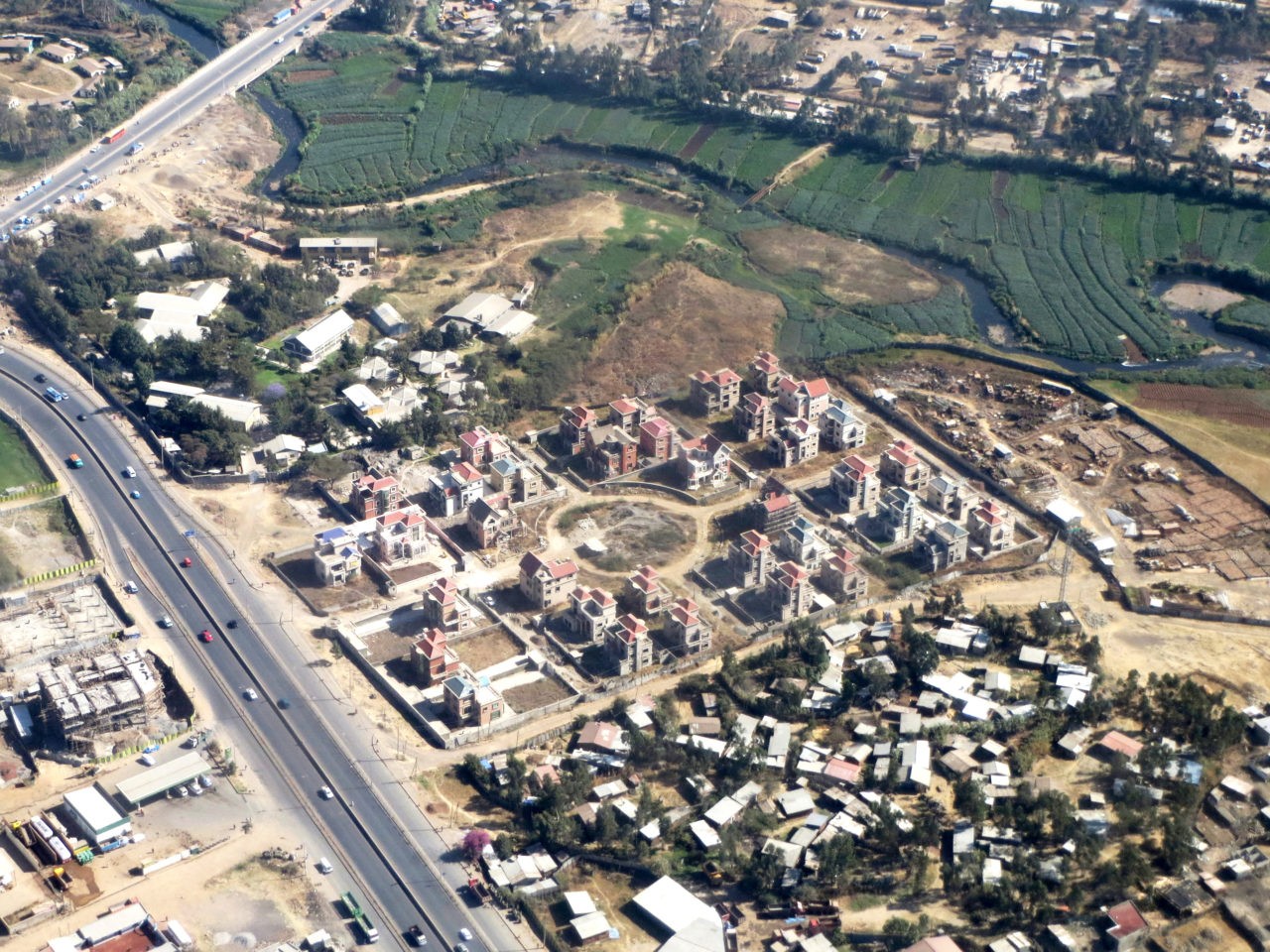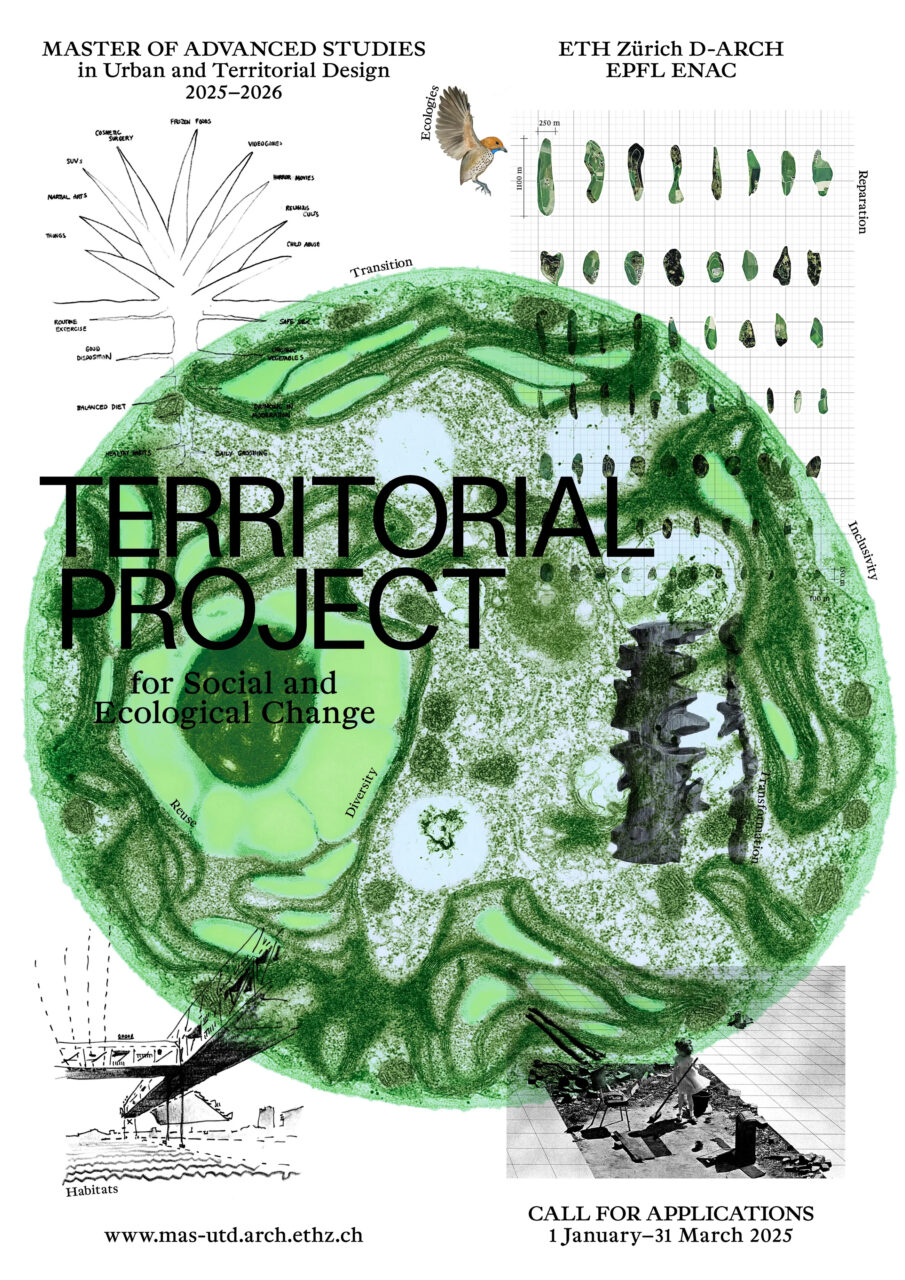The Institute of Landscape and Urban Studies (LUS) at the ETH Zurich Department of Architecture invites applications for one doctoral fellowship position. The fellowship will start on 1 October 2025, with a 100% workload, based in Zurich, and is fixed-term for three-and-a-half years.
The LUS Doctoral Programme
The doctoral programme at the Institute of Landscape and Urban Studies (LUS), ETH Zurich D-ARCH, tackles contemporary challenges in urban and environmental transformation within broader socio-cultural, political-economic, and theoretical contexts. In light of the planetary crises, the programme fosters critical discourse and supports independent, innovative, and proactive research aimed at addressing urgent socio-ecological issues.
The LUS Institute examines the production of landscapes, territories, and human settlements across various scales and diverse global geographies, including Switzerland, Europe, and other territories in the so-called Global North and Global South. Key research areas encompass designed ecologies, energy landscapes, agroecology, hydrology, regenerative agriculture, adaptive infrastructures, more-than-human landscapes, indigenous territories, housing, and socio-economic development.
The doctoral programme at the Institute adopts an inter- and transdisciplinary approach, integrating architecture, landscape architecture, urban and territorial design, planning, urban theory and history, as well as the social sciences. It embraces a diverse range of methodologies, including qualitative and quantitative approaches, ranging from multispecies ethnography to critical cartography and participatory action research to non-representational methodologies.
The doctoral programme is conducted in English and currently has an enrolment of 25 participants. The LUS doctoral programme encourages both individual research and collaborative engagement within the doctoral community, fostering a vibrant academic environment. The programme offers a variety of platforms for interaction and exchange, including the LUS methods seminar, institute-wide colloquia, workshops, and doctoral reviews. Embedded in the dynamic doctoral education environment of the Department of Architecture at ETH Zurich, the LUS doctoral programme maintains an active collaboration with the doctoral programme at the Institute of History and Theory of Architecture (gta), ETH Zurich. This collaboration enhances interdisciplinary perspectives and expands research opportunities for participants.
Participating Chairs at the LUS
While it is advantageous for the proposed research to align with the individual and/or collective research agendas of the participating chairs at the LUS Institute, candidates are also encouraged to apply with independent research topics that resonate with the Institute’s broader areas of expertise and competencies.
The LUS Institute currently consists of seven chairs, each contributing uniquely to its diverse research landscape:
- Chair of History and Theory of Urban Design, Prof. Dr. Tom Avermaete
- Chair of Architecture and Housing, Prof. Maria Conen
- Chair of Landscape Architecture, Prof. Dr. Teresa Galí-Izard
- Chair of Architecture and Urban Design, Prof. Hubert Klumpner
- Chair of Architecture and Urban Transformation, Prof. Freek Persyn
- Chair of Architecture and Territorial Planning, Prof. Milica Topalovic
- Chair of Landscape Architecture, Prof. Martina Voser
Applicant Profile
We are seeking individuals with a background in architecture, landscape architecture, urban and territorial design and planning, and the social sciences, who have strong research or design experience and can benefit from the inter- and transdisciplinary engagements offered by the Institute.
Applicants must hold a university diploma or master’s degree obtained at university level (equivalent to FHEQ Level 7) in architecture, landscape architecture, urban design, urban planning, social sciences, or related fields.
Additionally, applicants should demonstrate excellent research and writing skills.
We offer
The programme provides funding for up to three-and-a-half years. You will be employed at full employment (100% pensum), based on the ETH Zurich doctoral student contract, with monthly salaries according to the ‘standard rate’. For a detailed calculation of salaries, please refer to this link.
You are required to take up residency in Zurich during the period of the scholarship. Working, teaching and research at ETH Zurich
We value diversity
In line with our values, ETH Zurich encourages an inclusive culture. We promote equality of opportunity, value diversity and nurture a working and learning environment in which the rights and dignity of all our staff and students are respected. Visit our Equal Opportunities and Diversity website to find out how we ensure a fair and open environment that allows everyone to grow and flourish.
Curious? So are we.
Applications should be addressed directly to the Institute of Landscape and Urban Studies (LUS), rather than to individual professors. Please note that applications will be evaluated solely based on their content; applicants are therefore requested not to contact individual professors prior to applying.We look forward to receiving your online application, including the following documents by 15 March 2025, 23:59 CET:
1. Letter of Motivation (1 page).
2. Outline for the Proposed Research Project (4 pages + addendums). The document should include the research title, a review of the current state-of-the-art related to the proposed topic, clearly defined research questions, articulated aims and objectives, anticipated formats for publication, and the rationale for why the LUS Institute is an ideal host for the proposed research. The main content must adhere to the 4-page limit, using 11 pt font and single-spacing. Supplementary pages may include up to three illustrations (maps, drawings, images), a bibliography, and a project timeline.
3. Curriculum Vitae (including publications, portfolio, and work samples, maximum 10 pages).
4. Published Piece of Writing (if available, 1 text, maximum 15 pages).
5. Names, Affiliations, and Email Addresses of 2 Referees
Please note that applications missing any of the required documents listed above and/or exceeding the specified page limits will not be considered for evaluation.
The programme exclusively accepts application documents submitted through the ETH online application portal. Applications submitted via email or postal mail will not be considered.
For further information about the programme, the participating faculty, and the application process, please visit this page.
Application Timeline
- 15 March 2025: Submission deadline (23:59 CET).
- April 2025: Notification to shortlisted candidates.
- Early May 2025: Interviews with shortlisted candidates.
- End of May 2025: Notification to successful applicants.
- 1 October 2025: Start of the programme.
Further Information
Applicants are asked to consult the Frequently Asked Questions (FAQs) before reaching out. If your question is not covered there, you may contact the doctoral programme coordinator, Nazlı Tümerdem, at tuemerdem@arch.ethz.ch. Requests sent to any other email addresses will not be considered.
You may apply via this link.

